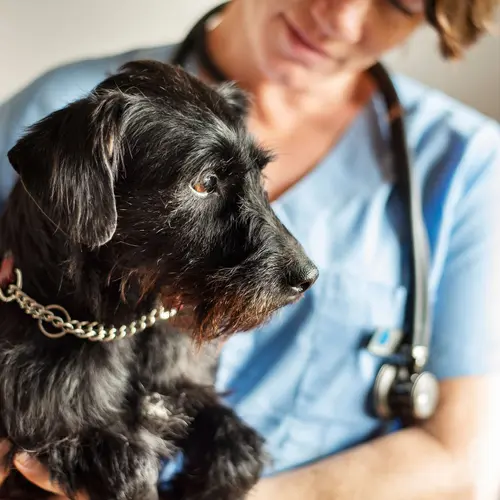Raccoons are wild animals famous for the mask-like markings on their faces. People like raccoons because they’re cute and they have a unique way of using their paws.
Pet raccoons aren’t common, but some people have kept domesticated raccoons as pets over the years. President Calvin Coolidge had two pet raccoons while he was in the White House. While they may seem cute, owning a pet raccoon might be more trouble than it’s worth, and most animal experts don’t recommend keeping them as pets.
Do Raccoons Make Good Pets?
Raccoons are intelligent animals. They can problem solve and have good memories. However, raccoons are wild animals, so taking one from the wild won’t have good results and is likely illegal. If you find a raccoon that has been domesticated or rehabilitated, they can be a loving and playful pet.
It’s only legal in 16 states to own pet raccoons. You’ll need to find out if your state allows them before bringing one into your home.
Domesticated raccoons can be housetrained and become affectionate. But pet racoons like to play as much as they like to cuddle. Tame raccoons can be unpredictable and mischievous. They like to climb and explore and are not suited for cages or small rooms. Owning pet raccoons can be a big commitment, as they need a lot of attention and care.
Pet Raccoon Problems
Raccoons can be difficult to keep as pets, and you may face challenges having one in your home.
Various temperaments. Raccoons can be aggressive and might bite anyone — including family, pets, strangers, and other animals. Adult raccoons, if not domesticated, can become aggressive as young as six months old. Some raccoons may be curious and friendly with people. Other raccoons may be skittish and flee when approached.
Disease carriers. Raccoons can carry rabies, and there’s no approved vaccination for rabies, so if your raccoon bites or scratches someone, they may be confiscated and euthanized for testing and as a safety precaution. Raccoons can carry and transmit distemper, Salmonella, and leptospirosis, as well as parasites like fleas, to humans. Baylisascaris is caused by roundworms from raccoons and can be deadly in people.
Difficulty finding care. Even in states where owning a domesticated pet raccoon is legal, it may be difficult to find a veterinarian who specializes in care. Look for one with knowledge and expertise in exotic pets, and be sure to ask them about raccoons specifically. If you’re planning a vacation and need a pet-sitter, you won’t likely be able to board your raccoon, like you might with a cat or dog. You’ll need to find a friend or hire a professional who’s capable of supervising your pet raccoon’s needs while you’re gone.
Mischievous nature. Raccoons are mischievous animals and use their long-fingered paws to open doors, unscrew lids, and do other tasks. This can make it difficult to keep them out of areas or things they shouldn’t get into.
Caring for a Raccoon
If your state permits owning pet raccoons and you want to add one to your family, you’ll need to find a reputable raccoon breeder who breeds domestic raccoons to be pets in homes. Do not bring wild raccoons into your house, which is illegal almost everywhere.
Your raccoon needs a spacious enclosure where they can move and roam about freely. You can train your raccoon to use a litter box, if they will be an indoor pet. If your raccoon is staying in your house, a large dog crate can work for short periods of time. But a pet raccoon needs to be able to roam freely when you’re there and able to supervise. Child-proofing your home will be necessary — pet raccoons will get into everything.
Having a raccoon enclosure outside allows your pet raccoon space to play. To engage their natural instincts, they need toys and things to climb on. Make sure the enclosure has a top so your pet doesn’t wander off.
Raccoons eat both meat and plants. They can eat poultry, fish, insects, vegetables, and fruits. Young raccoons will graze and eat as much as they want, but as they get older, you should limit their meals. Complete dog foods make a great diet staple for racoons. They also love to dip their food in water before eating, so give them a shallow water dish along with their meals.
Safety Concerns
Raccoons are considered a primary carrier of rabies. Key symptoms of rabid behavior include:
- Staggered walk
- Lack of response to noise or nearby movement
- Erratic wandering
- Discharge from eyes or mouth
- Wet and matted hair on face
- Repeated high-pitched vocalization
If your pet raccoon is showing these symptoms, call your vet or animal control right away.
Raccoons can become infected with other parasites and diseases. Because they can bite even when unprovoked, they may be dangerous to other pets and family. Consider carefully if this is the right pet for you.

